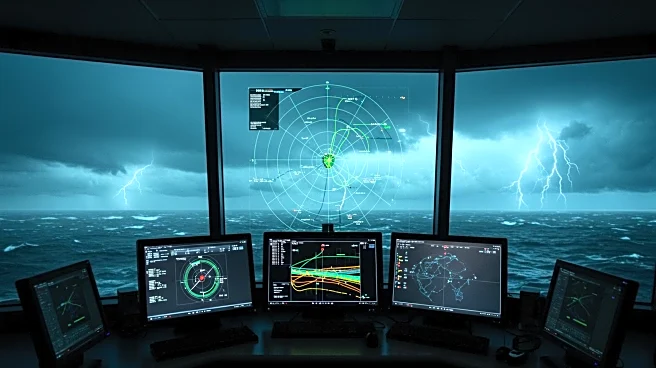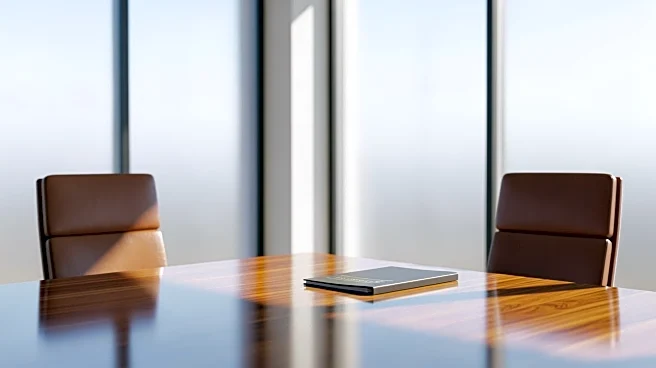What's Happening?
A collision occurred between the feeder container ship Maersk Gironde and the car carrier SFL Composer near Funen off Denmark's east coast on August 5. The incident, which took place at night in one of Northern Europe's busiest shipping lanes, is under investigation by the Danish Maritime Authority. The collision underscores the challenges of navigating high-traffic channels, especially at night, where reduced visibility and high traffic density increase the risk of accidents. The maritime industry is urged to adopt AI-powered computer vision technology to enhance situational awareness and reduce the risk of human error during navigation.
Why It's Important?
The collision highlights the significant risks associated with nighttime navigation in congested waterways. Enhanced situational awareness through technology can mitigate these risks, reducing the likelihood of costly collisions that can damage ships, delay operations, and harm reputations. The incident serves as a call to action for the maritime industry to invest in digital watchkeeping systems that can prevent such accidents, ensuring safer navigation and protecting cargo and crew.
What's Next?
The Danish Maritime Authority's investigation will determine the cause of the collision, potentially leading to recommendations for improved safety measures. The maritime industry may see increased adoption of AI-powered navigation systems to enhance situational awareness and prevent future incidents. Stakeholders, including shipping companies and technology providers, are likely to collaborate on developing and implementing advanced safety solutions.
Beyond the Headlines
The incident raises ethical considerations about the reliance on technology versus human judgment in navigation. While technology can reduce workload and error, it is crucial to balance its use with traditional watchkeeping practices to ensure comprehensive safety measures. The maritime industry must address these ethical dimensions as it integrates advanced technologies.









